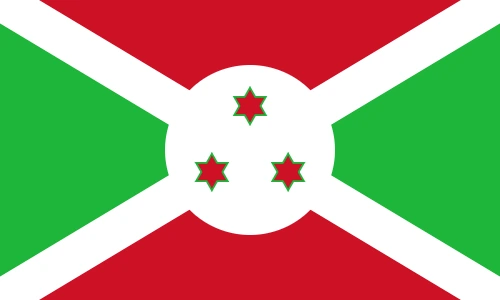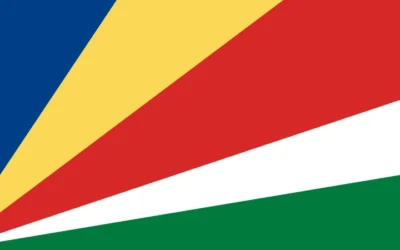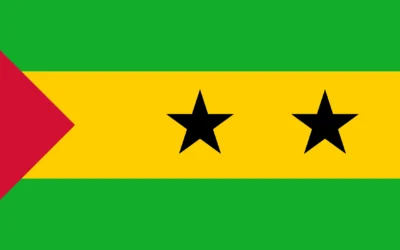Burundi Travel Guide
Discover Why You Should Visit Burundi
Why Visit Burundi?
Burundi, one of Africa’s smallest and most culturally rich nations, offers lush landscapes, ancient traditions, and an authentic experience for travelers seeking untouched destinations. Located in the heart of the Great Lakes region, it boasts dramatic scenery, warm people, and a deeply rooted heritage.
Though often overlooked, Burundi invites visitors with its national parks, drumming rituals, coffee culture, and access to the stunning Lake Tanganyika shoreline.
Ideal for: Off-the-beaten-path explorers, cultural enthusiasts, hikers, and eco-tourists.
Must-Know Facts
Capital/Major City: Gitega (political), Bujumbura (economic)
Language(s): Kirundi (official), French, English, Swahili
Currency: Burundian Franc (BIF)
Best Time to Visit: June to September (dry season)
Fun Fact: Burundi is home to the Royal Drummers, a UNESCO-recognized cultural treasure famous for their energetic performances and ancient heritage.
Top Things to Do
Watch a traditional performance of the Royal Drummers of Burundi
Visit Lake Tanganyika for swimming, kayaking, and lakeside relaxation
Explore Rusizi National Park for hippo sightings and birdwatching
Tour the Gitega National Museum to learn about Burundian history and royalty
Hike Mount Heha, Burundi’s highest peak, for scenic views and local encounters
Local Culture & Lifestyle
Burundi’s culture is shaped by the traditions of the Hutu, Tutsi, and Twa peoples. Ceremonial drumming, dance, and oral storytelling play vital roles in daily life and celebrations.
Hospitality and community cohesion are central values, with strong rural roots influencing food, dress, and customs.
Drumming ceremonies often accompany important social events such as births, harvests, and national holidays.
Food & Drink Highlights
Street Food: Grilled corn, brochettes (meat skewers), fried plantains, sweet cassava
Restaurants: Ubuntu Residence, Le Café Gourmand, and Cercle Nautique (Bujumbura)
Drinks: Burundian coffee, banana wine, local beers, ginger tea
Desserts: Rice pudding with coconut, honey-dipped pastries, tropical fruit mixes
Main Dish & Culinary Symbols
Signature Dish: Beans and bananas served with rice or ugali, often complemented by grilled goat or fish
Common Ingredients: Beans, maize, bananas, cassava, goat meat, freshwater fish
Culinary Culture: Meals are typically homemade, simple yet flavorful, and shared among families and neighbors
Symbols & Icons of the Area
Natural Icons: Lake Tanganyika, Mount Heha, Kibira Forest
Cultural Icons: Royal Drums, traditional straw huts, handmade baskets, Imvyino (traditional dance)
Hidden Gems & Off-the-Beaten-Path
Kigwena Forest for primate watching and guided nature walks
Karera Waterfalls and their sacred historical significance
Source of the Nile marker near Rutovu, a symbolic site surrounded by scenic countryside
Shopping & Souvenirs
What to Buy: Handwoven baskets, wooden sculptures, coffee beans, banana fiber art
Where to Shop: Bujumbura craft markets, cooperatives in Gitega and Ngozi, roadside stalls in rural villages
Getting Around
Public Transport: Minibuses and taxis are common in cities and towns
Car Rentals: Best for regional travel and remote areas, often with a driver
Tip: Roads can be rough outside urban areas; local drivers are helpful
Walkability: Good in city centers and cultural sites, with many areas accessible on foot
Travel Tips
French and Kirundi are widely spoken; English is emerging but limited
Respect local customs and dress modestly, especially when visiting rural areas
Use bottled or purified water, and carry cash as electronic payments are limited
Security conditions may vary, so stay informed through official travel advisories and local guidance
Where to Stay
Budget: Guesthouses in Gitega and Bujumbura, local inns near national parks
Mid-range: Hotel Club du Lac Tanganyika, Safari Gate Hotel
Luxury: Limited but comfortable lakeside lodges and business hotels in Bujumbura
Unique: Lakeside bungalows, ecolodges near forest reserves, and heritage guesthouses
Sample 4-Day Itinerary
Day 1: Arrive in Bujumbura, stroll along Lake Tanganyika, and enjoy local cuisine
Day 2: Visit Rusizi National Park and the Livingstone–Stanley Monument
Day 3: Travel to Gitega, explore the National Museum and catch a drumming show
Day 4: Hike Mount Heha or visit Karera Waterfalls before returning to Bujumbura






0 Comments